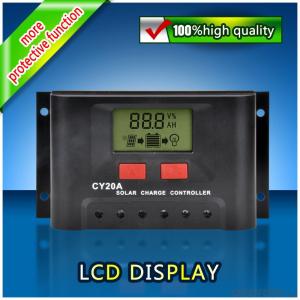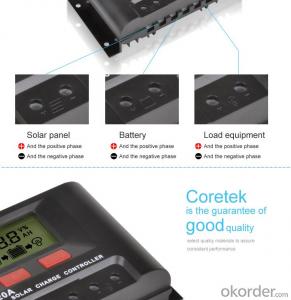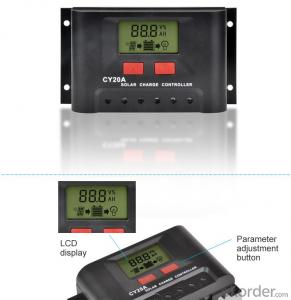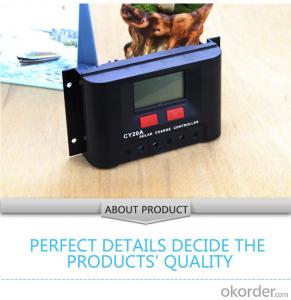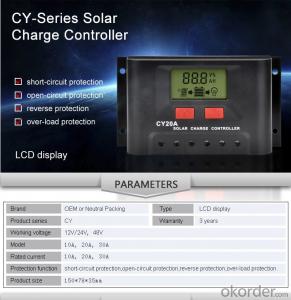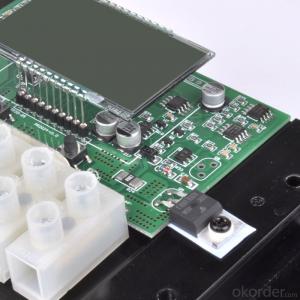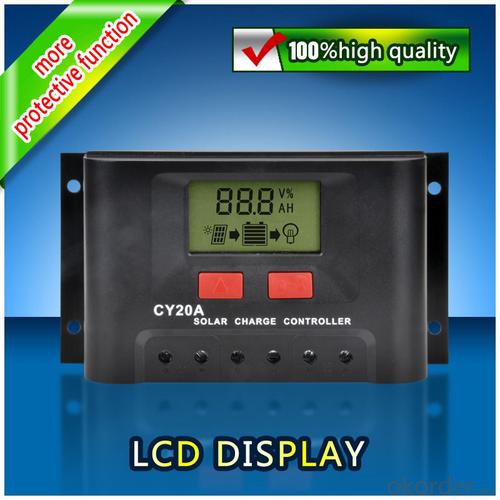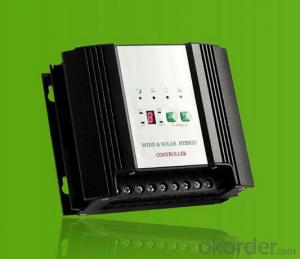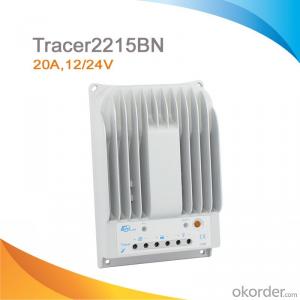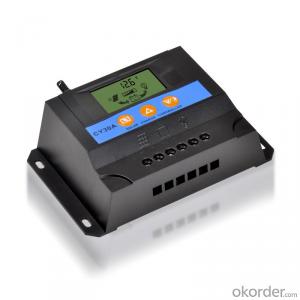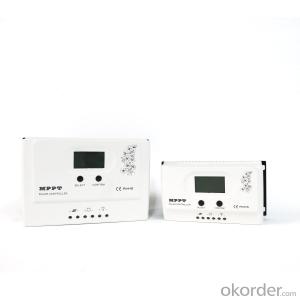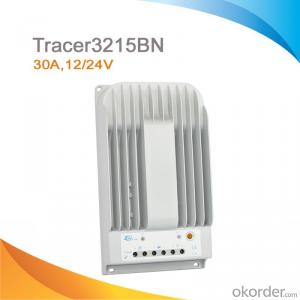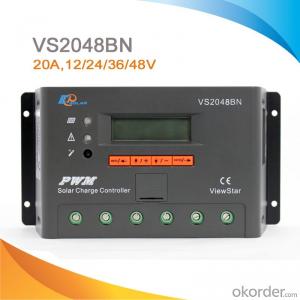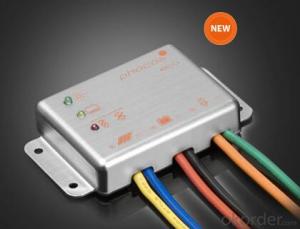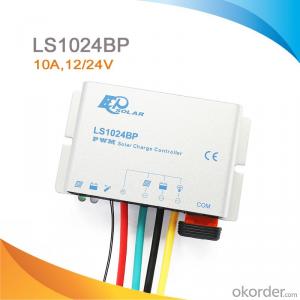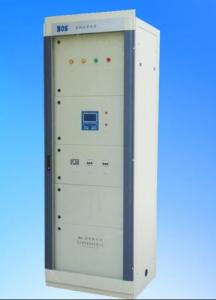MPPT Solar Charge Controllers Pso Solar LCD Controller CY20B
- Loading Port:
- China main port
- Payment Terms:
- TT or LC
- Min Order Qty:
- 1 unit
- Supply Capability:
- 10000 unit/month
OKorder Service Pledge
OKorder Financial Service
You Might Also Like
Product Introduction
Solar controller is control device which can control solar panel and transform solar energy into electricity then store to the battery bank. Solar controller is the most important part in offgrid system, whose performance has much effect on life expectancy and operation of the whole system, especially the battery expectancy.
Application Areas
Standalone Photovoltaic power station
Standalone Domestic household photovoltaic power system
Mobil communication base stations, expressway and other non-residential regions.
Coastal islands, remote mountainous, border posts for regions shortage of or without electricity.
Government demonstration projects, landscape lighting project etc.
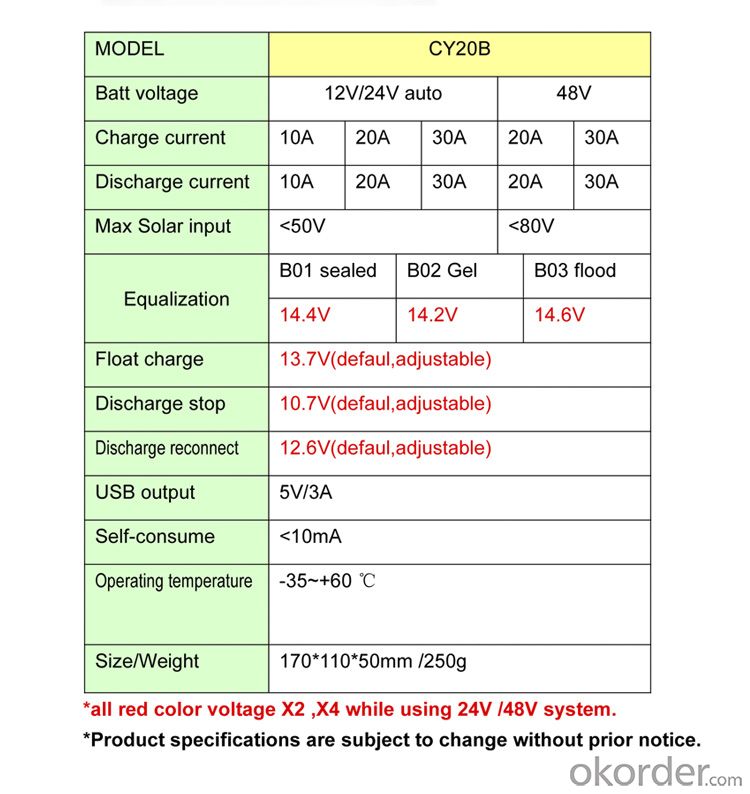
Selection of high-quality materials properties be consistent from beginning to end
For life is a convenient
A little more secure
The innovation design idea of the perfect show
The first set of people-oriented
The high-end configuration components
- Q: Can a solar controller be used with multiple solar panels?
- Yes, a solar controller can be used with multiple solar panels. The solar controller regulates the flow of electricity from the solar panels to the battery or load, regardless of the number of panels connected to it.
- Q: How does a solar controller prevent reverse current flow from the battery to the solar panels?
- The solar controller serves as a vital component in a solar power system, responsible for regulating the charging and discharging of batteries. Its primary role involves preventing the undesirable flow of current from the battery back to the solar panels. When the battery voltage surpasses the voltage generated by the solar panels, reverse current flow occurs. In the absence of a solar controller, this would result in the battery discharging back to the solar panels, leading to energy wastage and potential harm to the system. To counteract this reverse current flow, the solar controller employs a specialized feature known as a blocking diode. This diode acts as a unidirectional valve for the electrical current, permitting it to flow from the solar panels to the battery while effectively blocking any reverse flow. Upon the generation of electricity by the solar panels, the solar controller detects the voltage and ensures that it exceeds the battery voltage. If the solar panel voltage proves higher, the controller allows the current to flow towards the battery, facilitating its charging. However, as soon as the solar panel voltage drops below the battery voltage, the controller promptly activates the blocking diode, preventing any reverse current flow. By implementing this mechanism, the solar controller guarantees the efficient storage of energy produced by the solar panels within the battery, eliminating any loss caused by reverse current flow. This not only optimizes the overall efficiency of the system but also safeguards the battery against potential damage incurred by discharging. To summarize, the solar controller effectively prevents reverse current flow from the battery to the solar panels through the utilization of a blocking diode, which permits current to flow in a singular direction. This mechanism ensures the system's efficiency and safeguards the battery, guaranteeing optimal performance and longevity of the solar power system.
- Q: What is the role of a solar controller in preventing overcurrent in the solar panel system?
- Maintaining the safety and optimal functioning of a solar panel system heavily relies on the crucial role of a solar controller in preventing overcurrent. Also referred to as a charge controller, this device effectively regulates the flow of current from the solar panels to the battery bank or electrical load. A significant function of the solar controller is to prevent the batteries from overcharging. As solar panels generate electricity from sunlight, it is possible for them to produce more current than the battery bank can handle if not properly regulated. This surplus of current can result in overcharging, which has the potential to damage the batteries and reduce their lifespan. To prevent the occurrence of overcurrent, the solar controller actively monitors the voltage of the battery bank and makes necessary adjustments to the charging current. When the batteries reach their maximum voltage level, the solar controller either reduces the charging current or completely disconnects the solar panels from the battery bank to halt any further flow of current. This measure ensures that a safe and optimal charging level is maintained for the batteries, ultimately guaranteeing their longevity and performance. Furthermore, the solar controller also plays a vital role in safeguarding the solar panels themselves from overcurrent. In cases where partial shading occurs, a phenomenon known as "hot spots" can emerge, wherein certain sections of the solar panels receive less sunlight compared to others. This imbalance in the current flow can lead to overcurrent in those specific areas, potentially causing damage to the solar panels. To mitigate these issues, solar controllers are equipped with various protective features, including overcurrent protection, short-circuit protection, and reverse polarity protection. By constantly monitoring the current flow from the panels, the solar controller promptly disconnects them if any abnormalities are detected, effectively preventing any potential damage. In summary, the primary function of a solar controller in a solar panel system is to regulate the charging current to the battery bank, thus preventing overcharging and damage to the batteries. Additionally, it serves to protect the solar panels from overcurrent and potential damage caused by shading or other irregularities. This ensures the system's longevity, safety, and optimal performance.
- Q: Can a solar controller be used with a solar-powered charging station for electric vehicles?
- Yes, a solar controller can be used with a solar-powered charging station for electric vehicles. A solar controller, also known as a charge controller, is an essential component in a solar power system that regulates the charging and discharging of the batteries. In the context of a solar-powered charging station for electric vehicles, the solar controller plays a crucial role in ensuring efficient and safe charging of the electric vehicle's batteries. The solar controller monitors the amount of energy being generated by the solar panels and regulates the charging process to prevent overcharging or undercharging of the batteries. It also protects the batteries from various electrical issues such as overvoltage, overcurrent, and short circuits. Additionally, some advanced solar controllers have features like maximum power point tracking (MPPT) which optimizes the charging efficiency by extracting maximum power from the solar panels. By using a solar controller in conjunction with a solar-powered charging station for electric vehicles, the charging process becomes more reliable and efficient. It ensures that the electric vehicle's batteries receive the appropriate amount of energy from the solar panels, maximizing the charging capacity and extending the battery life. Moreover, the solar controller provides an additional layer of protection for the batteries, safeguarding them against potential damage caused by irregularities in the solar power system. Overall, a solar controller is an essential component that enhances the performance, efficiency, and safety of a solar-powered charging station for electric vehicles. Its inclusion ensures proper charging regulation, protection, and optimization of the solar power system, thereby making it an integral part of the charging infrastructure for electric vehicles.
- Q: Can a solar controller be used with solar battery storage systems?
- Yes, a solar controller can be used with solar battery storage systems. A solar controller, also known as a charge controller, is designed to regulate the amount of charge going into the batteries to prevent overcharging and extend their lifespan. It ensures that the solar panels are charging the batteries efficiently and effectively. Therefore, when using a solar battery storage system, a solar controller is an essential component to ensure the proper charging and maintenance of the batteries.
- Q: Can a solar controller be used with a solar-powered water filtration system?
- Yes, a solar controller can be used with a solar-powered water filtration system. A solar controller helps regulate the flow of electricity from the solar panels to the filtration system, ensuring optimal performance and preventing overcharging or damage to the system's batteries.
- Q: Can a solar controller be used with solar-powered indoor hospitality facilities?
- Yes, a solar controller can be used with solar-powered indoor hospitality facilities. A solar controller is an essential component of a solar power system as it regulates the flow of electricity from the solar panels to the batteries. In the case of indoor hospitality facilities powered by solar energy, the solar controller would play a crucial role in managing the energy generated by the solar panels and ensuring it is efficiently stored in batteries for use during times when sunlight is not available, such as during nighttime or cloudy days. By using a solar controller, indoor hospitality facilities can effectively harness solar power and rely on it as a sustainable and renewable energy source to power their operations.
- Q: Can a solar controller be used with solar-powered remote monitoring systems?
- Yes, a solar controller can be used with solar-powered remote monitoring systems. A solar controller regulates the electrical charge from solar panels and ensures the batteries are charged efficiently. This is crucial for remote monitoring systems as it helps maintain a steady power supply and prolongs the battery life, enabling continuous and reliable operation.
- Q: How does a solar controller handle variations in load demand?
- A solar controller handles variations in load demand by regulating the flow of power from the solar panels to the load. It continuously monitors the load demand and adjusts the amount of power being delivered accordingly. This ensures that the load receives the required amount of power while preventing overloading or underutilization of the solar system.
- Q: Is a solar controller necessary for all solar panel installations?
- No, a solar controller is not necessary for all solar panel installations. It depends on the type of solar panel system being used. Solar controllers are typically used in systems that include batteries to store excess energy generated by the solar panels. If the system is grid-tied and does not include batteries, a solar controller may not be necessary.
Send your message to us
MPPT Solar Charge Controllers Pso Solar LCD Controller CY20B
- Loading Port:
- China main port
- Payment Terms:
- TT or LC
- Min Order Qty:
- 1 unit
- Supply Capability:
- 10000 unit/month
OKorder Service Pledge
OKorder Financial Service
Similar products
Hot products
Hot Searches
Related keywords
